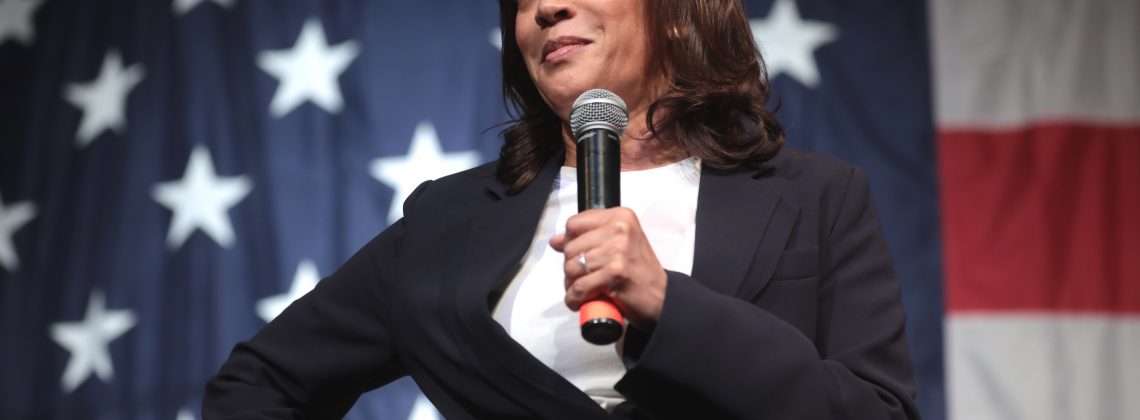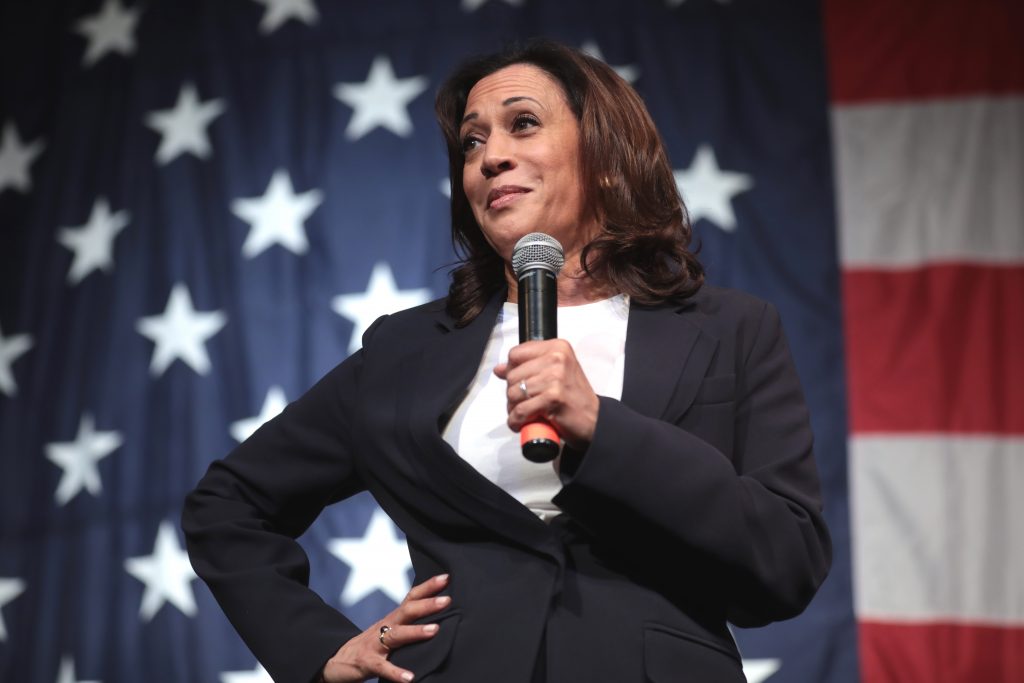

Kamala Harris has yet to give an interview as of this writing, which is probably smart: For months prior to her ascension, voters have been telling pollsters that while they preferred Trump to Biden, they actually preferred a “generic Democrat” to both. Harris has, thus far, managed to incarnate that generic Democrat role.
Wisely, she’s distanced herself from her more progressive–and less popular–past. Indeed, on crime, immigration, and in foreign policy, Harris has recovered vigorous ground once held by Republicans (and conservative Democrats of yore).
One recent proposal, however, might appear as a misstep out of a far-left past, and that’s her announcement that she supports “a federal ban on corporate price gouging on groceries.”
At least in its broad outline, however, Harris’s sense that corporations aren’t particularly sensitive to the needs of families fits with the latest, populist, turn in American conservatism, especially some of its Catholic versions. Sohrab Amari latest book takes dead aim at “the corporation and unfettered capitalism, and he proposes that the only way to check their power is through the embrace of big government.”
Patrick Deneen’s “common-good conservatism” advocates organizing society and the economy around the good of families rather than corporations. There is, of course, only one player in the game with the power to do that: the government.
Speaking of government and high grocery prices, it’s a distinct possibility that the former is responsible, at least in part, for the latter. Republicans would like voters to blame Biden’s pandemic stimulus. Harris quite naturally prefers the most popular alternative narrative, which fingers corporate greed.
Who or what is actually to be blamed is very close to moot at this point in the election cycle. Economists will continue to argue it, useful lessons will be learned, but on the ground right now what matters for Harris is having something to say when her administration is blamed for consumers’ pain. Blaming big business fits the need. How it will work–what counts as “gouging,” who will determine when it’s occurred, what the punishment will be, what the consequences for markets and prices will be of this government interference–is a question that will need elaboration later, should any congress actually deign to implement this policy (I’ll go out on a limb and guess that’s unlikely).
Some commentators point out, rightly, that the policy is too late: grocery prices are back to normal. Prices leaped up (for many reasons) in 2021, and inflation remained problematic through 2023. Food prices reached their peak in August 2022, stressing family budgets by almost 15% beyond that time a year earlier. As Catherine Rampel writes in her scathing take-down of Harris’s proposal, the vice president and her team seem unaware that “the battle against inflation has, believe it not, pretty much already been won.”
If Harris is unaware of that fact–which I doubt–she would be in broad company: voters in general have been slow to pick up on the fact that inflation has been low for months now. The Biden team hoped voter perceptions would catch up with economic realities in time for the election, but Harris isn’t so trusting. Her skepticism is warranted. Up till now, Democrats have been touting the numbers–employment is full, the stock market is surging, inflation is under control, people are buying boats!
But numbers do not a narrative make. The Republican narrative developed in the 1970s is well-entrenched and persuasive to many Americans: the free market is everyone’s friend, just get government out of the way, prosperity will ensue. The leftist, progressive, New Dealer instinct to blame the plutocrats has never been an easy sell in the American context. There’s a reason the Tea Party took off while Occupy Wall St. withered in the wake of the 2008 financial crisis.
Ironically, the last time we saw a serious policy initiative targeting grocery prices was also a moment of rare liberal-conservative cross-fertilization. In the summer of 1973 President Richard Nixon was struggling to right the economic boat. He could, like Biden, point to a number of bright spots: jobs, disposable income, GDP. But, said Nixon, “there is one great problem that rightly concerns every one of us, and that is, as you know, rising prices, and especially rising food prices.” Nixon proposed a number of solutions, the best remembered being his wage and price freeze. Largely forgotten is his other component: “I have also taken another action today to stop the rise in the cost of living. I have ordered the Internal Revenue Service to begin immediately a thoroughgoing audit of the books of companies which have raised their prices more than 1 1/2 percent above the January ceiling. The purpose of the audit will be to find out whether these increases were justified by rising costs. If they were not, the prices will be rolled back.”
Nixon’s brief foray into putting government on the side of consumers was soon lost amidst ensuing events: the Yom Kippur War, OPEC’s oil embargo, Watergate.
I doubt Vice President Harris will want to cite that precedent, but it’s there if she needs it.